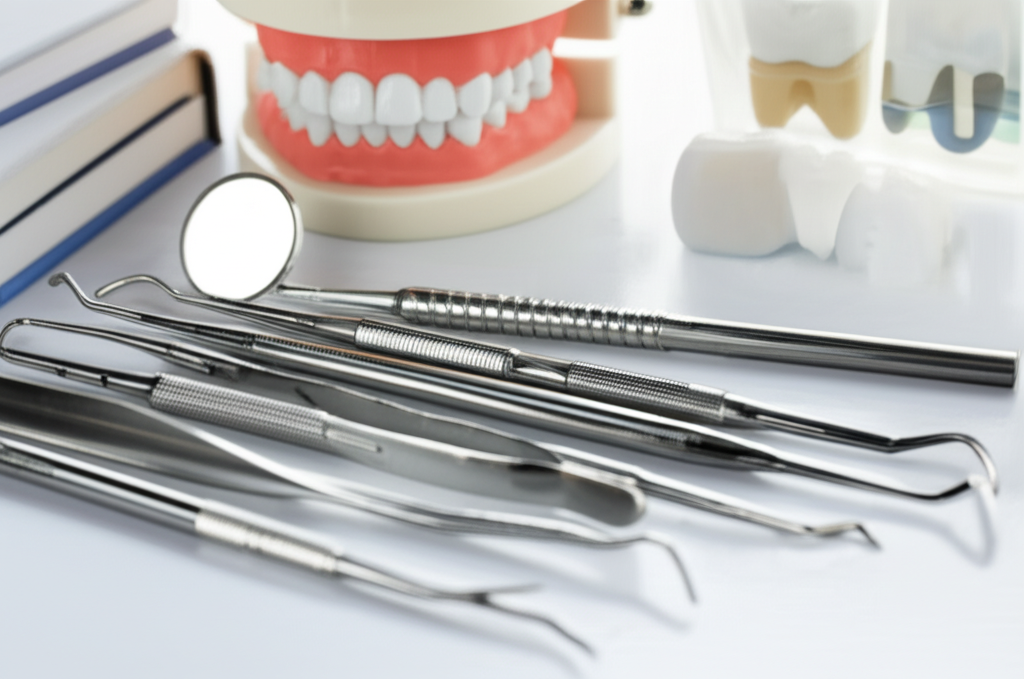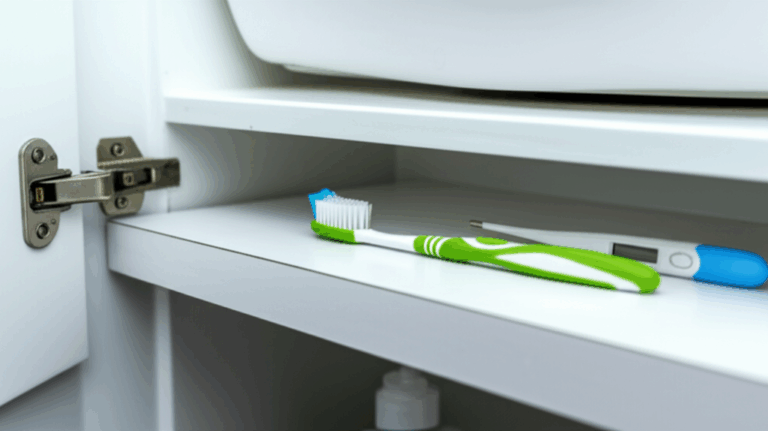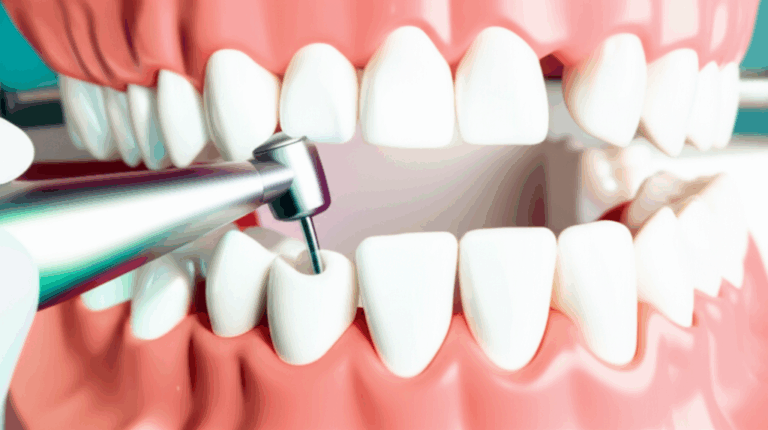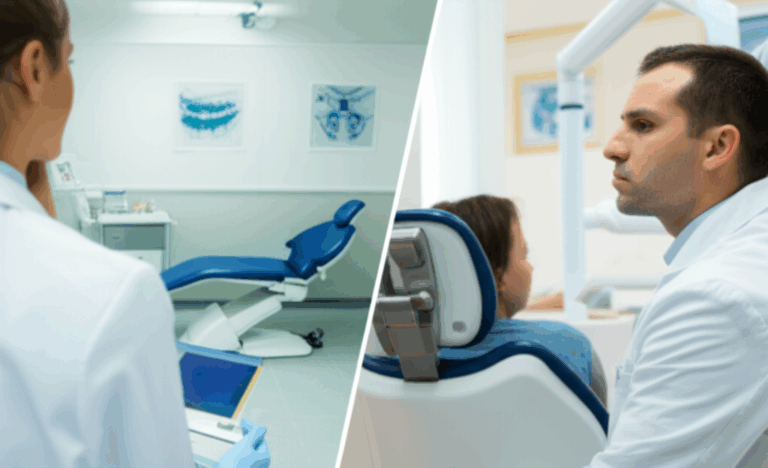
What Education is Needed to Become a Dentist? Your Clear Roadmap
Table of Contents
2.1 Required Bachelor’s Degree or Credits
2.2 Important Science Classes
2.3 Pre-Dental Experiences: Shadowing, Volunteering, & Research
3.1 DAT Structure and Sections
3.2 DAT Study Tips and What Score to Aim For
4.1 Key Application Pieces
4.2 The Interview: How to Get Ready
4.3 More Than Just Grades: Looking at the Whole Person
5.1 DDS vs. DMD: What’s the Difference?
5.2 Four Years of Dental School
5.3 Accreditation: Why It Matters
6.1 The Integrated National Board Dental Exam (INBDE)
6.2 State Licensure Rules
7.1 How to Become a Dental Specialist
7.2 Fellowships and Learning More
8.1 Time Commitment: It’s a Big Journey
8.2 The Cost: What to Expect and Plan For
8.3 What Kind of Person Succeeds?
Introduction: Why I Chose Dentistry
Back in high school, I had no idea what job I wanted. I liked science and hoped to help people, but nothing stood out until I shadowed a local dentist. Dentistry let me use science, work with my hands, and help others feel good about their smiles. One thing nobody tells you: becoming a dentist isn’t quick or easy. It’s a long road, and every part of it makes you better for the job.
So, what schooling do you need to be a dentist? Let me explain it step by step.
The Foundation: Undergraduate Education and Prerequisites
Required Bachelor’s Degree or Credits
My journey started at college. I wondered if it had to be a biology degree, or if something else was okay. Most dental schools want you to have a bachelor’s degree, but the actual major is up to you.
Most of my friends picked Biology or Chemistry since those covered all needed classes. I picked Biochemistry, which was a good choice, too. Dental schools mainly look at what classes you take and your grades—not your exact major.
What to aim for:
- Finish 4 years of college.
- Keep a good GPA—shoot for at least 3.5, especially in science subjects like biology, chemistry, and physics.
Important Science Classes
You can’t skip the science classes. Here are the main ones every dental school I talked to asked for:
- Biology (with labs)
- General Chemistry (with labs)
- Organic Chemistry (with labs)
- Physics (with labs)
- Biochemistry (sometimes no lab needed)
- Helpful to have: Microbiology, Anatomy, Physiology, English, and Statistics
These classes are important for understanding what you’ll see in dental school. Anatomy was tough for me in college, but it gave me a head start later.
Pre-Dental Experiences: Shadowing, Volunteering, & Research
You can’t learn everything from books. Dental schools want to see you’ve spent time in actual dentist offices. I shadowed both regular dentists and specialists. It wasn’t just to tick a box—it also helped me know I wanted this job.
- Shadowing: Schools usually want at least 100 hours.
- Volunteering & Leadership: I did community service and joined dental outreach in rural places. Being a leader in the pre-dental club also helped.
- Research: Not a must, but I did a year in a research lab. It made my application stronger.
The Dental Admission Test (DAT)
DAT Structure and Sections
This is when things got tough. The Dental Admission Test (DAT) is needed for all dental schools in the US. Even with all my science classes, the DAT was a different kind of challenge.
There are four parts:
- Survey of Natural Sciences (Biology, Chemistry, Organic Chemistry)
- Perceptual Ability Test (PAT) – checks how well you can see things in 3D
- Reading Comprehension
- Quantitative Reasoning
I studied for about three months. The PAT was the most different—I had to practice seeing and imagining objects in my head.
DAT Study Tips and What Score to Aim For
I used books, practice tests, and websites. Flashcards helped a lot. Most people try to get 20–22 in each part—the average. Top dental schools want at least that, often more.
I practiced extra on my weak spots. My reading score was low at first, so I read hard science articles to get better. For PAT, I did lots of puzzles. Practicing often really worked.
Getting Through the Dental School Application
Key Application Pieces
Applying isn’t just filling out forms; you need to tell your story. The AADSAS is the main website for dental school applications. Here’s what I had to turn in:
- Transcripts & Grades: Make sure it’s all correct.
- Personal Statement: This is your story. I wrote about volunteering at a clinic and how it changed me.
- Letters of Recommendation: Most need two from science teachers and one from a dentist. Pick people who know you well.
- Other Activities: Include work in labs, clubs, and shadowing.
The Interview: How to Get Ready
When interviews started, I was nervous. Some schools use traditional interviews; others use MMI (Multiple Mini Interviews), with role-play and problem solving.
They want more than good grades. I got questions about stress, teamwork, and doing the right thing. What helped me was being honest, excited, and showing I care—plus talking about things I made with my hands, like models and crafts.
More Than Just Grades: Looking at the Whole Person
Now, lots of dental schools look at more than grades and scores. They want leaders, volunteers, people with unique experiences. The year I led dental screenings at a local shelter really helped me get accepted.
Dental School: Earning Your DDS or DMD Degree
DDS vs. DMD: What’s the Difference?
I got a DMD (Doctor of Dental Medicine) at my school. My friend got a DDS (Doctor of Dental Surgery). They’re the same thing—just different names.
Four Years of Dental School
Dental school was intense! Here’s what it looked like:
Years 1-2: Classes and Lab Practice
- Heavy on science—anatomy, drugs, disease, and dental materials.
- Lots of practice drilling and making fake teeth before we saw real patients.
Years 3-4: Working with Patients
- I worked on real people, with teachers watching and helping.
- Rotated through different types of dental care—general, braces, kids, root canals, oral surgery. I saw all kinds of people and problems.
Accreditation: Why It Matters
Dental schools in the US must be approved (accredited) by CODA. I checked this for every school I applied to. It’s important, because only graduates from accredited schools can become dentists.
After Graduation: Getting a License and Board Exams
The Integrated National Board Dental Exam (INBDE)
After finishing school, you can’t just start working. I had to pass the INBDE, which is a long, tough test on science and real-life dental care.
State Licensure Rules
Once you pass the INBDE, each state has its own rules. I had to:
- Pass a hands-on test (sometimes with a real patient)
- Take a test on dental laws for my state
- Get a background check and show proof of learning
Even when you’re working, you have to keep taking classes every year to keep your license up to date.
Advanced Education and Specialties
How to Become a Dental Specialist
General dentistry is great, but some people go further—like orthodontics, oral surgery, or kids’ dentistry. This takes extra training after dental school (2–6 more years for specialties).
Main specialties:
- Orthodontics (2–3 years)
- Oral and Maxillofacial Surgery (4–6 years)
- Pediatric Dentistry (2–3 years)
- Endodontics (2–3 years)
- Periodontics (3 years)
- Prosthodontics (3 years)
- Dental Public Health, Oral Pathology, Radiology, Dental Anesthesiology
Getting these spots is tough. You need top grades, strong board scores, some research, and good recommendations.
Fellowships and Learning More
If you want, you can get even more training in a dental fellowship. I know someone who did advanced prosthodontics—it added a year, but he learned skills most dentists don’t have. You can also take extra classes or train at a digital dental lab or other places that teach new dental tech and tools.
Important Things to Know for Future Dentists
Time Commitment: It’s a Big Journey
Let’s be honest—this takes a while. Four years of college, four years of dental school, maybe extra years for specialties. Lots of my friends finished college and started jobs while I was still in school. But at the end, being a dentist really pays off, both in skills and pay.
The Cost: What to Expect and Plan For
Dental school is expensive. Public schools can cost $40–60,000 a year. Private ones can be over $80,000 a year. That’s just tuition—doesn’t count living costs and tools.
I used scholarships, loans, and help from family. Most grads owe about $285,000 by the end. It’s scary, but there are loan programs, especially if you work in rural or low-income places.
What Kind of Person Succeeds?
It’s not just about grades or tests. You need to be tough, caring, and have good hand skills. My first time dealing with emergencies and paperwork was hard, but it made me stronger. Nobody can teach you to keep going when things get hard—but that’s the kind of person dentistry needs.
Conclusion: Your Path to a Great Dental Career
Looking back, I see a long path filled with hard work, late nights, growth, and some humbling moments. Every class, DAT study session, shadowing hour, and patient made me a better dentist—and a better person.
Is the education hard? No question. But it’s a journey of learning, making friends, and truly helping people. If you want to try, start planning your steps now. Whether you want to design veneers, place implants, or run your own office, the world needs caring, skilled dentists.
For more info, check out groups like the American Dental Association or the Commission on Dental Accreditation. And if you want to know about new tech—like at a china dental lab—there’s always more to learn.
Stick with it—the work you put in really does help people smile every day.
Content reviewed by Dr. Joe Dental, DDS—Licensed General Dentist, ADEA Member.








